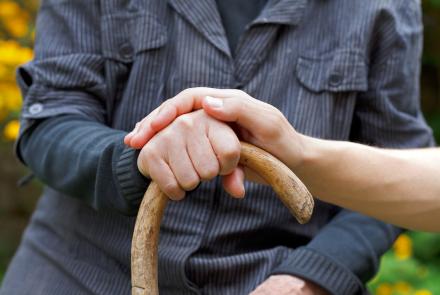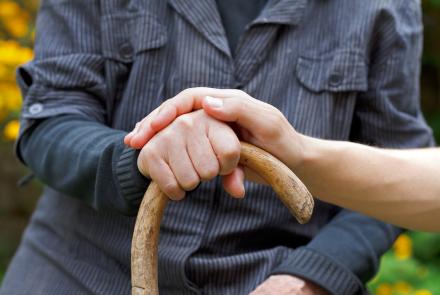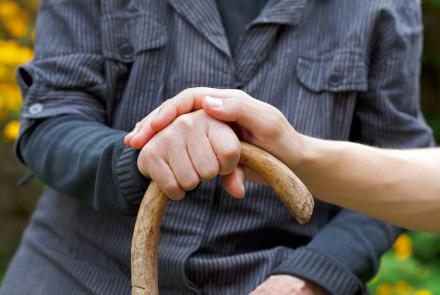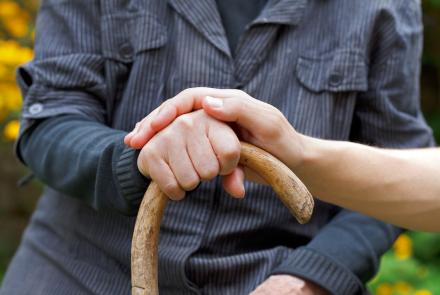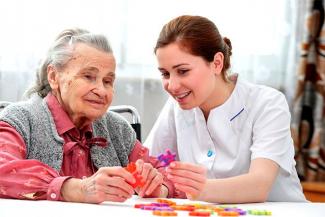
People with moderate stage dementia can continue to perform their regular daily activities with a little bit of support. Social worker Mangala Joglekar, who runs several programs for the dementia community and has set-up the Memory Clinic in Deenanath Mangeshkar Hospital, Pune, shares 5 examples of coping strategies for better living. And Advice for Caregivers.
Moderate stage dementia could be said to start when cognitive inabilities can no longer be hidden. It is considered as the longest phase. It is possible to take good care of the patient and maintain his/her independence during this stage if proper guidance is provided to the family. It is however important that the patient and caregiving family accept the disease condition and changes that follow as a result of the disease.
Acceptance of the disease leads to living everyday life as normally as is possible. Let us take a few examples.
Example One
Meena runs her own consultancy service. Her family was worried about some changes in her. Consultation with the doctor and other tests indicated that she has dementia. Her current problems include language difficulties- she is forgetting names – names of things in the kitchen, around the house, names of roads, names of buildings and so on. She has lost her confidence; her sense of orientation is diminishing. She can hold new information for a much shorter duration. But she can still manage her work; there are no complaints about services she is offering to her clients. She is able to manage the household.
She was given the exercise of going around the house along with another family member to jog her memory of things in the house. Along with regularly doing this exercise it was also necessary to remove items which were unimportant for her because she cannot overload her brain with unwanted names. She also started going for a walk every day, this helped her to remember the roads better. A few counselling sessions which also included memory exercises helped improve her confidence. Her family was asked not to say things which will make her feel worried about her memory for example: “Meena how can you not remember a thing like a refrigerator?” Meena is doing better now. She and her family are going about life as normally as is possible. Her problems will keep changing. But she and her family can treat them appropriately with some guidance.
Example Two
Seetharaman is used to getting up early. He needs tea first thing in the morning. He prepares tea for him and his wife. But one day his wife was awakened by the smell of cooking gas. She was alarmed and did not want to put a stop to his habit.
With the help of colorful stickers she taught her husband how to make sure that the gas stove was turned off by matching the stickers.
Example Three
Vasu is able to do the laundry herself by using a chart which is put up above the washing machine for her use.
Example Four
Giridharlal goes out every day and manages various household chores, one chore at a time. He exchanges books in the nearby library, picks up laundered clothes, and goes to the pharmacy to pick up medicines. All of these business owners know about Giridharlal’s memory problems, they cooperate with him. His wife settles all the bills once a month so he does not have to deal with money transactions.
However, even a slight change in the routine or things the patients are handling might disrupt their habit.
Example Five
Savitaben used to clean her water filter everyday but her daughter in law exchanged it for a newer version and Savitaben was so confused with the newer design that she stopped cleaning the filter altogether.
Common problems during moderate stage dementia
Common problems during moderate stage may include – everyday tasks becoming more complex, difficulty expressing ones thoughts, orientation difficulties, compromised cleanliness, wandering, increased level of confusion, mood swings, hallucinations, agitation and aggression, loss of judgment, social impairment, reduced thinking, inability to travel alone, not remembering every day information such as one’s own address among others. During this stage even though patients can manage many things on their own, caregivers have to be constantly on guard.
Advice for Caregivers
But caregivers can learn how best to help the patients. Using routines, providing information and supervision (without making the person feel that he/she is supervised) can often help. Providing gentle reminders work better than directing the person to do a task. Making the patient understand logic behind the action may not work at all. Using written reminders may be useful. Caregivers can also predict emotional state of the patients and learn how to respond in such situations. By and large caregivers can get confident in handling various situations. Training in handling caregiving responsibility can be of tremendous help and can set the caregivers on the right path.
I have quite a few patients who are doing as well as they did 3, 4 years ago. They may need guidance when getting dressed, some instructions here and there but overall they are continuing to do well. If current capabilities are judged properly and assistance is matched adequately the person will remain independent and active for a longer time. Providing opportunities for socialization, trips to nearby places can help uplift mood of both the patient as well as the caregiver. Daily exercise is also very important.
Caregivers need to follow some ground rules. For example, caregivers have to be flexible in handling situations and cannot expect any change in the patient, or cannot treat the patient as a child. Not getting upset by irrational behaviour is important. Thinking about past or future does not help similarly pitying oneself for the present role is also hurtful. It is equally important to recognize medical problems as soon as they develop and to respond to them promptly.
Important to build Support Group
Building one’s own help group is very important. The help may not always be physical in nature but receiving advice on handling matters, emotional help is also significant. It is important for the caregiver to feel that there are people who care; because a feeling that “I am alone in this” results in ruining caregiver’s psychological health. The help group members can join for a lunch or dinner. Sometime they can be with the patient for a couple hours allowing the caregiver the necessary respite. Keeping in touch with the group by informing them about the current condition, talking about one’s feelings, is quite useful. It is necessary that caregivers get adequate help and not hesitate in getting paid caregivers when the need arises, and continue to have their own life.


